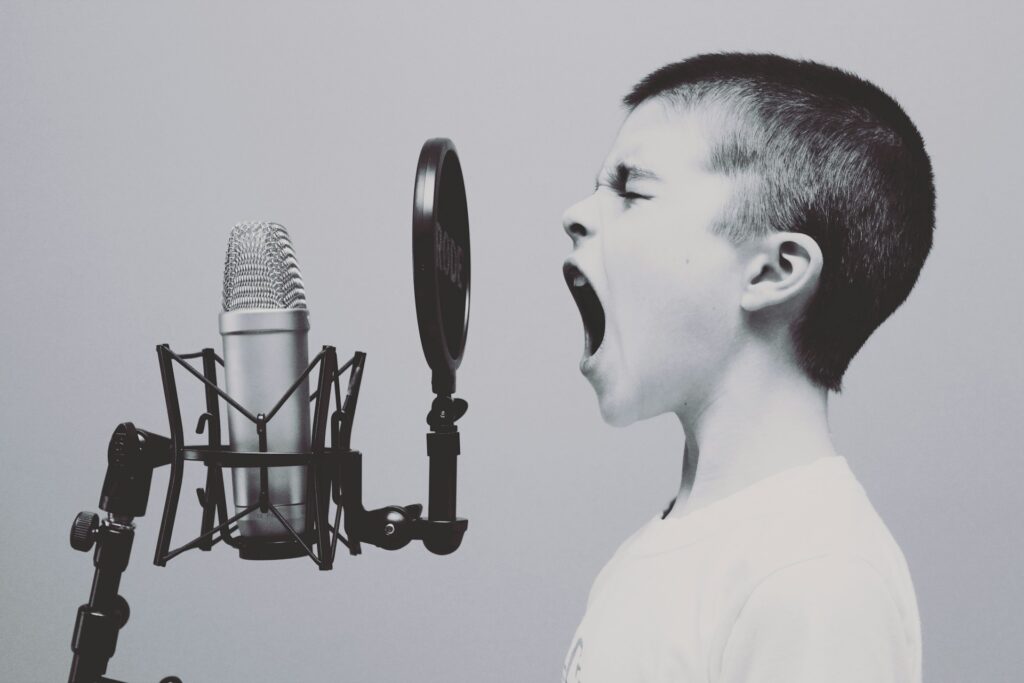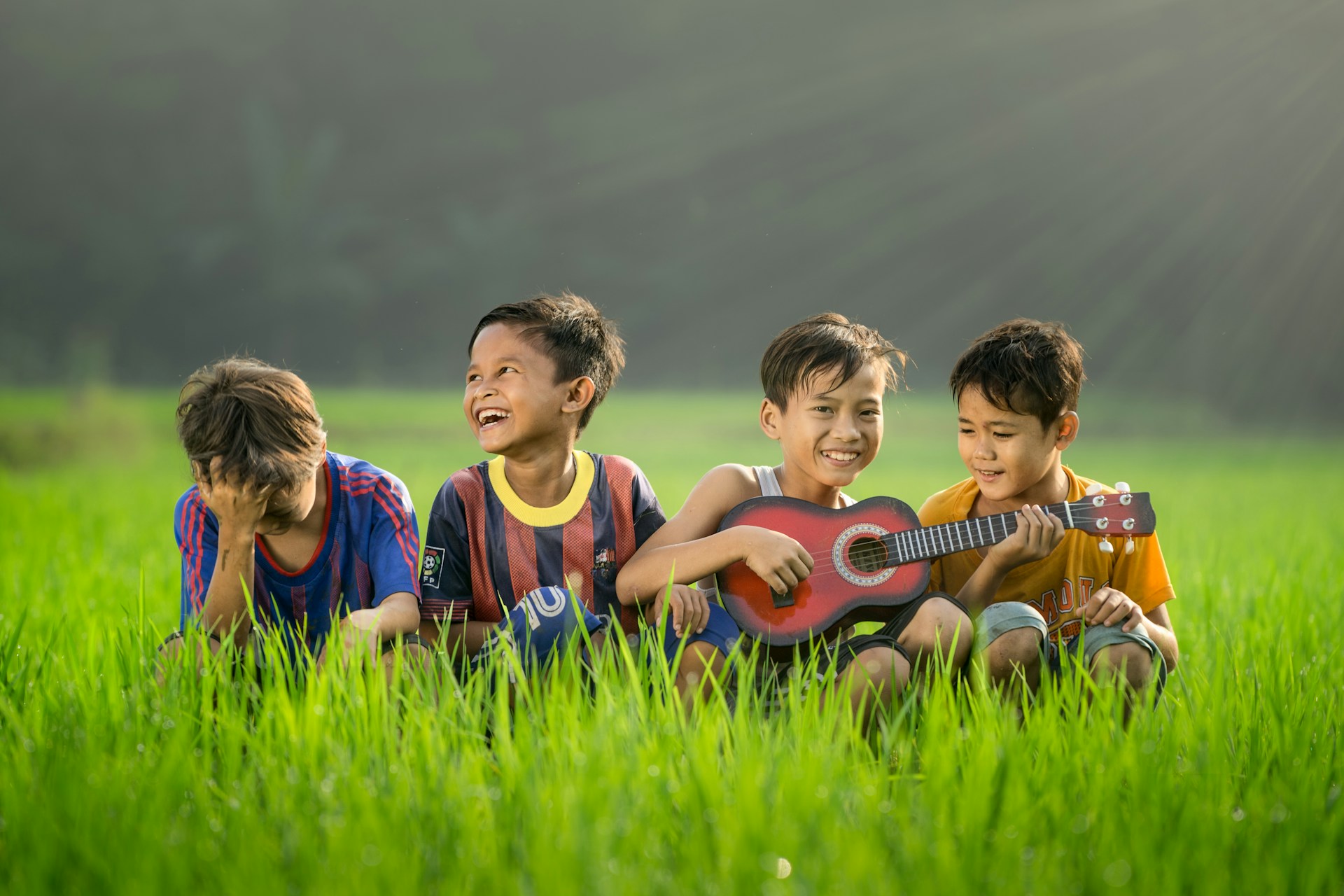Imagine walking into a room filled with the sound of laughter, joy, and melodies drifting through the air. The atmosphere is alive with rhythm and harmony, captivating everyone within earshot. This scene is not just a utopian dream but a reality that can be cultivated by introducing music to your children.
From the earliest civilizations to modern times, music has been an integral part of human culture and society. Its power to evoke emotions, stimulate the mind, and bring people together transcends boundaries and generations. Historically, music has been revered for its ability to communicate stories, express emotions, and celebrate cultural identity.
Table of Contents
- Cognitive Development
- Emotional Development
- Social Development
- Creativity and Self-Expression
- Practical Benefits
- Final Thoughts
Cognitive Development

The intricate interplay between music and brain development has long fascinated researchers and educators alike. Numerous studies have highlighted the profound impact of music on various cognitive functions, from memory and attention to spatial reasoning and executive function. Engaging with music stimulates multiple areas of the brain simultaneously, fostering neural connections that lay the groundwork for enhanced cognitive abilities.
Enhancing Language Skills
Music and language share common neural pathways, making them deeply intertwined in cognitive development. Exposure to music, especially through activities like singing and rhythm games, can significantly boost language skills in children. Melodic patterns and rhythmic structures help develop phonological awareness, aiding in the recognition and comprehension of speech sounds. Moreover, singing along to lyrics promotes vocabulary acquisition and strengthens syntactic understanding, laying a solid foundation for language fluency.
Improving Mathematical Abilities
The mathematical underpinnings of music make it a potent tool for enhancing numerical proficiency in children. From recognizing patterns in musical compositions to understanding rhythmic divisions, engaging with music nurtures a fundamental understanding of mathematical concepts. Studies have shown that children exposed to music early on exhibit better spatial-temporal reasoning skills, which are crucial for problem-solving and mathematical comprehension. By incorporating music into their learning environment, parents and educators can effectively supplement traditional math instruction and cultivate a holistic approach to mathematical learning.
Emotional Development
Music serves as a powerful medium for expressing and processing emotions, providing children with a safe and constructive outlet for their feelings. Whether through listening to emotive melodies or creating their own music, children can explore and articulate a wide range of emotions, from joy and excitement to sadness and frustration. Music allows them to connect with their innermost feelings and communicate them in a nonverbal manner, fostering emotional intelligence and self-awareness.
Coping Mechanism
In times of stress, uncertainty, or adversity, music can be a reliable source of comfort and solace for children. The rhythmic patterns and melodic harmonies of music have a soothing effect on the mind and body, helping to alleviate anxiety and promote relaxation. By listening to calming music or engaging in musical activities such as singing or playing an instrument, children can regulate their emotions and cope more effectively with life’s challenges. Moreover, the act of creating music empowers children to channel their emotions into constructive outlets, offering them a sense of control and empowerment in difficult situations.
Building Empathy and Compassion
Through music, children can develop a deeper understanding of the emotions and experiences of others, cultivating empathy and compassion. Whether through listening to music from different cultures or collaborating with peers in musical ensembles, children are exposed to diverse perspectives and narratives that broaden their empathetic horizons. Participating in musical activities that emphasize cooperation and collaboration fosters a sense of unity and interconnectedness, encouraging children to support and empathize with their fellow musicians. As children engage with music that reflects the human experience in all its complexity, they learn to appreciate the richness of emotional diversity and develop a profound sense of compassion towards others.
Social Development

Music has a remarkable ability to bring people together, fostering bonds and facilitating communication, even among young children. Whether through shared experiences like singing songs or dancing together, music creates opportunities for meaningful social interactions. It serves as a universal language that transcends barriers of age, language, and culture, enabling children to connect with others on a deeper level. By engaging in musical activities with family members, peers, or community members, children develop important social skills such as active listening, turn-taking, and expressing themselves effectively, laying the foundation for healthy interpersonal relationships.
Collaboration and Teamwork
Collaborating on musical projects, whether it’s playing in an ensemble or composing a song together, teaches children the value of teamwork and cooperation. In a musical ensemble, each member plays a unique role that contributes to the collective sound, emphasizing the importance of collaboration and mutual respect. Through rehearsals and performances, children learn to communicate effectively, compromise, and work towards a common goal, skills that are essential for success in all aspects of life. Moreover, the shared sense of accomplishment that comes from creating music as a team fosters a strong sense of camaraderie and belonging among children, promoting a supportive and inclusive social environment.
Cultural Awareness
Music serves as a gateway to different cultures and traditions, allowing children to explore the rich diversity of the world around them. By exposing children to a variety of musical styles, genres, and instruments from different cultures, parents and educators can instill in them a sense of curiosity and respect for cultural differences. Engaging with music from diverse backgrounds broadens children’s perspectives and promotes cultural awareness and appreciation. Moreover, learning about the historical and cultural contexts of various musical traditions encourages children to develop a deeper understanding of global issues and promotes empathy and tolerance towards people from different backgrounds. As children immerse themselves in the rich tapestry of musical traditions from around the world, they learn to celebrate diversity and embrace the beauty of cultural exchange.
Creativity and Self-Expression

Music serves as a boundless playground for the imagination, offering children endless opportunities to explore, experiment, and create. Whether through improvisation, composition, or reinterpretation of existing pieces, engaging with music stimulates creativity and innovation in children. The process of making music encourages them to think outside the box, take risks, and express themselves in unique ways. By experimenting with different sounds, rhythms, and musical techniques, children develop their creative instincts and learn to trust their artistic intuition. Moreover, the collaborative nature of music-making fosters a spirit of exploration and innovation, as children bounce ideas off each other and build upon each other’s creativity, collectively pushing the boundaries of what is possible.
Self-Identity and Self-Expression
Music provides children with a powerful means of self-expression, allowing them to convey their thoughts, emotions, and identity in a deeply personal way. Whether through song lyrics, instrumental performances, or dance movements, music enables children to express aspects of themselves that may be difficult to articulate verbally. Engaging with music that resonates with their experiences and emotions validates their feelings and empowers them to embrace their unique identity. Moreover, the process of creating music allows children to explore different facets of their personality and experiment with different artistic styles, helping them develop a strong sense of self-awareness and self-confidence.
Confidence Building
Music offers children a platform to showcase their talents and accomplishments, boosting their self-esteem and confidence. Whether performing in front of an audience, participating in competitions, or recording their own compositions, children gain a sense of pride and accomplishment from sharing their musical gifts with others. The positive feedback and encouragement they receive from peers, teachers, and family members further reinforce their self-worth and confidence. Moreover, overcoming challenges and setbacks in the pursuit of musical excellence teaches children resilience and perseverance, valuable life skills that will serve them well in the future. As children gain confidence in their musical abilities, they also develop a greater sense of agency and autonomy, empowering them to pursue their passions and dreams with determination and conviction.
Practical Benefits
Learning music requires dedication, practice, and discipline, qualities that translate into valuable life skills for children. Whether mastering a new instrument or perfecting a complex piece of music, the pursuit of musical excellence demands unwavering commitment and focus. Through regular practice sessions and rehearsals, children learn the importance of setting goals, managing their time effectively, and persevering in the face of challenges. Moreover, the structured nature of music education instills in children a sense of responsibility and accountability, as they must adhere to a practice schedule and meet performance expectations. By cultivating discipline and focus through music, children develop the self-regulation skills necessary for success in academics, extracurricular activities, and beyond.
Time Management Skills
Balancing the demands of school, extracurricular activities, and social commitments can be a daunting task for children, but music education can help them hone their time management skills. Learning an instrument or participating in a musical ensemble requires careful planning and organization to juggle rehearsals, performances, and practice sessions with other responsibilities. By prioritizing their commitments and allocating their time wisely, children learn to make efficient use of their time and develop strategies for managing competing demands. Moreover, the routine of practicing music regularly instills in children a sense of discipline and structure, helping them establish healthy habits and routines that will serve them well throughout their lives.
Career Opportunities
Beyond its intrinsic value as an art form, music opens doors to a wide range of career opportunities for children. Whether pursuing a career as a professional musician, music educator, or music therapist, the skills and experiences gained through music education provide a strong foundation for success in various fields. Moreover, the creative and collaborative skills cultivated through music are highly valued in today’s rapidly evolving job market, making music education an asset for children pursuing careers in diverse industries. Even for children who do not pursue music professionally, the discipline, focus, and teamwork skills developed through music education are transferable to a wide range of careers, enhancing their employability and career prospects in the future. By investing in music education, parents and educators empower children to explore their passions and unlock their full potential, laying the groundwork for a bright and successful future.
Final Thoughts
The importance of introducing music to children cannot be overstated. It serves as a catalyst for holistic development, nurturing cognitive, emotional, social, and practical skills that are essential for success in all aspects of life.
As parents, educators, and caregivers, it is our responsibility to recognize the immense value of music in shaping the lives of children. By incorporating music into their daily lives through listening, singing, playing instruments, or participating in musical activities, we can unlock their full potential and empower them to thrive in a complex and ever-changing world. Let us embrace music as a powerful tool for nurturing the minds, hearts, and souls of the next generation, ensuring a brighter future filled with harmony, creativity, and possibility.

